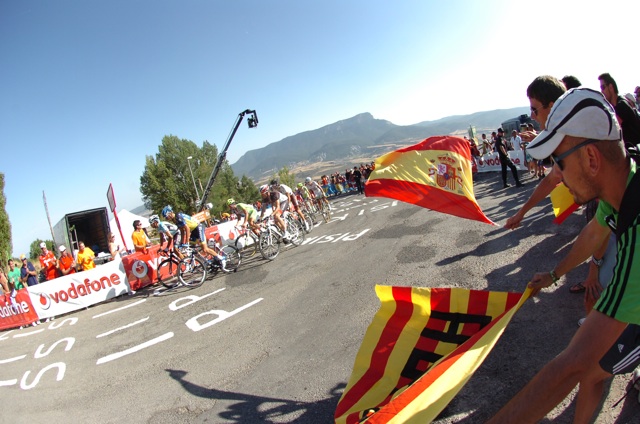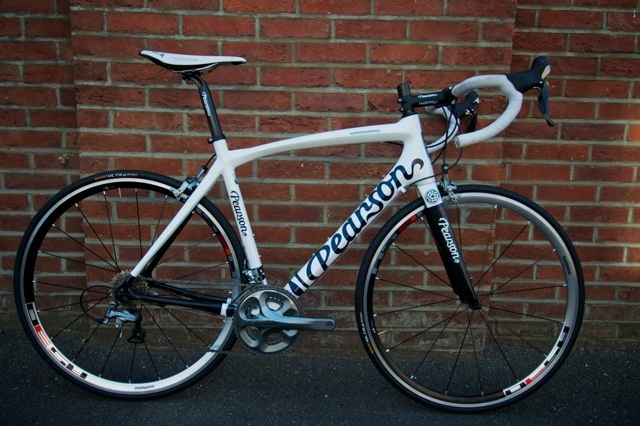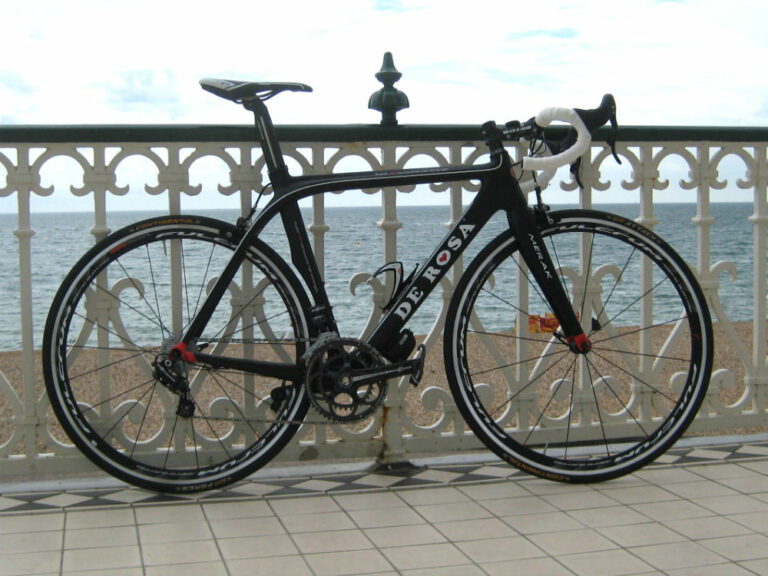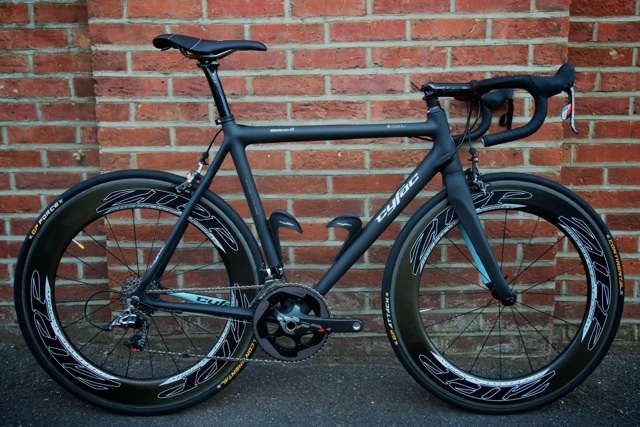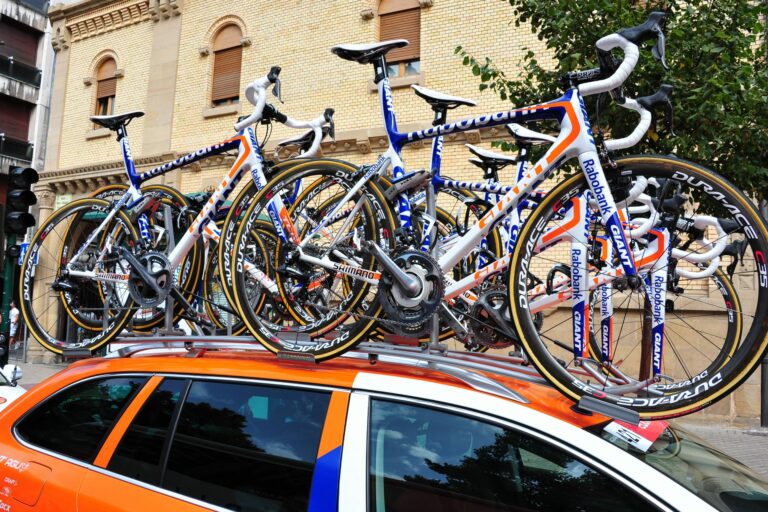We’ve been riding the Focus Cayo Evo 2.0 for six weeks now and that time in the saddle has revealed a fine all-round machine which is excellent value to boot.
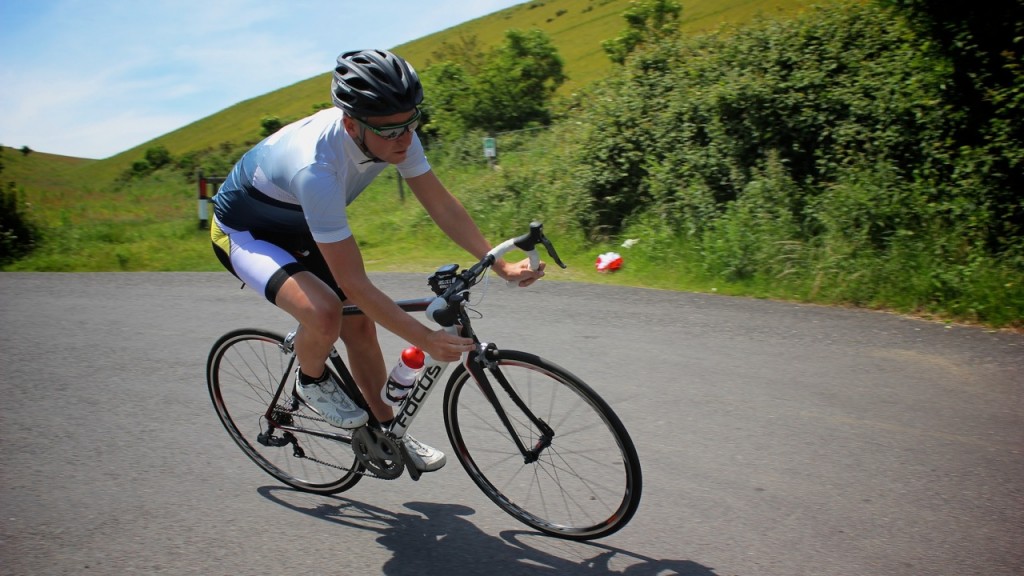
The Cayo Evo sits below the Izalco Pro in the Focus range but the German firm is confident about its race pedigree.
The frame is UCI certified, with the stamp of approval from cycling’s governing body on the top tube, and is part of the Focus-sponsored Acqua and Sapone Pro Continental team’s fleet. The squad’s star rider, Classics specialist Danilo Di Luca, rode the Cayo Evo at this year’s Milan-San Remo.
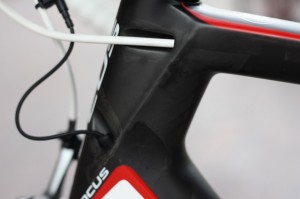
The Cayo Evo was unveiled in September 2011 and, as the name suggests, is an evolution of the Cayo. The design had more than a tweak, however, and the Evo frame is new for 2012.
The Cayo Evo is available in three builds, with the 3.0 (£2,299) and 1.0 (£3,199) running mechanical SRAM Force and Shimano Dura-Ace groupsets respectively.
The 2.0 (£2,799) is equipped with Shimano Ultegra Di2, however, and Focus have developed a Di2-specific frame as a result, with exceptionally tidy cable routing. There are two entry points on the head tube for the rear brake cable and electronic wiring, which then emerges from the seat tube directly in front of the front mech and from the driveside dropout for the rear derailleur. The battery is housed under the non-driveside chainstay, tucked out of the way as much as can be, and certainly better than strapping it to the down tube.
The Cayo Evo offers a stiff, responsive ride thanks to the chunky PF30 bottom bracket. That’s complemented well by a rigid front end – Focus say the tapered, angular head tube unit helps maintain front-end stiffness – while steering is accurate and focussed, without the twitch that can accompany some pro bikes.
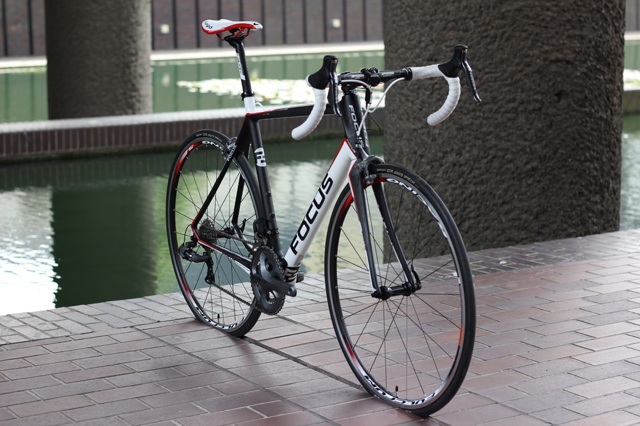
The frame weight is a claimed 980g which isn’t super-light in the current age of skinny bikes but Focus are keen to point out that they’d rather have a machine which delivers on ride quality, rather than drop the weight. The Cayo Evo succeeds in that regard. The deep chainstays narrow and flatten and splay into an elbow bend at their junction with the seat stays: a design which helps soften the rear end.
Focus have developed a reputation for bikes which offer good value for money and the Cayo Evo 2.0 continues that tradition. You may be parting with nearly £3,000 but the bike is well specced for the money.
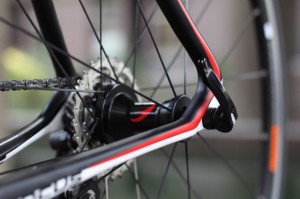
This test was my first experience of Shimano Ultegra Di2 and the electronic groupset provided smooth, precise and quick shifting on the rear sprockets, while, after a gentle whirr of the motor, front derailleur shifts were super-smooth. It’s superbly executed, although the front and rear mech, and battery, are chunky and not easy on the eye. Battery life is excellent, at approximately 1,000km per charge and it’s easy to check how much juice is left using the LED indicator which sits on the cabling.
That aside, the Cayo Evo 2.0 is equipped with a compact chainset (which may put off some racers but adds to the bike’s versatility), Fulcrum Racing 5 wheels (fine for training but worth upgrading to add a little more zip to the frame), wrapped in Continental’s excellent Grand Prix tyres, while an FSA Team Issue carbon stem and seatpost, FSA Wing Comp handlebar and Prologo Nago Evo saddle complete the spec. There’s little to fault.


